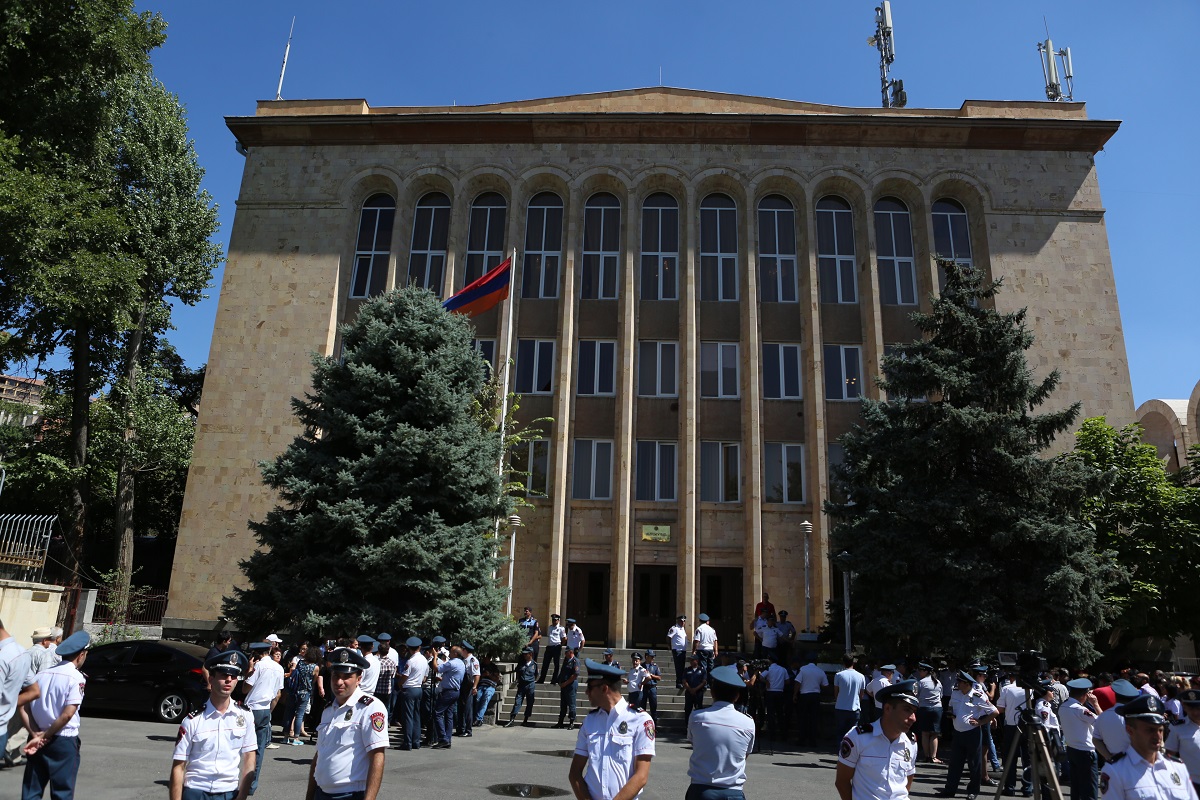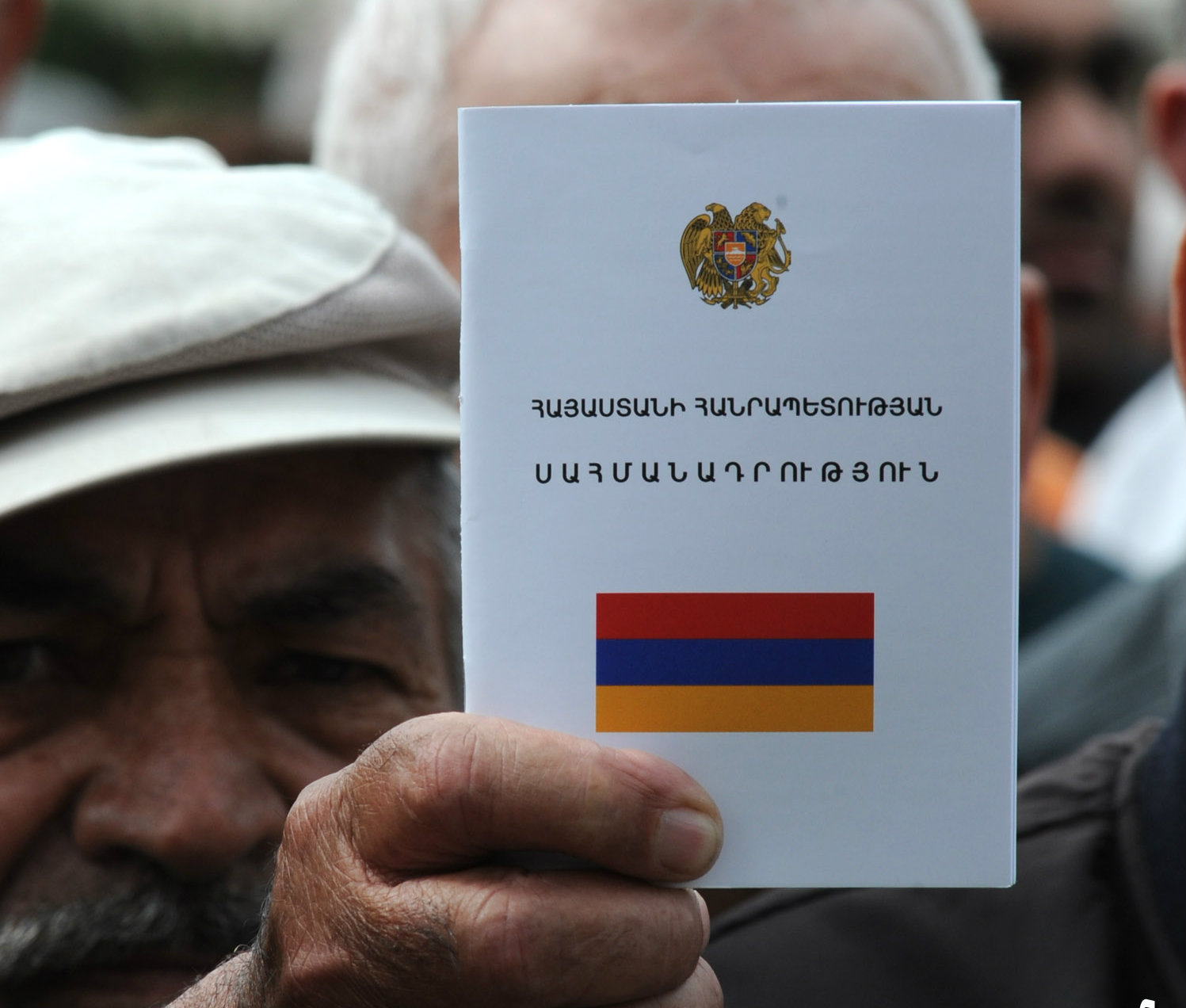"The death penalty is for high treason." Is the Prosecutor General of Armenia's proposal legal?
Death penalty for high treason
“Armenia has no international legal obligations to establish an absolute ban on the death penalty,” the Armenian general prosecutor’s office explained, referring to a controversial proposal by its leader, Prosecutor General Artur Davtyan, of instituting the death penalty for high treason. This came just two weeks before the end of Davtyan’s term.
Meanwhile, human rights activists disagree neither with the opinion of the chief prosecutor nor with the office’s statement.
The last execution in Armenia took place on August 30, 1991. Abolition of the death penalty was one of the conditions of Armenia’s membership in the Council of Europe, and since 2003 it has been legally prohibited.
The prohibition is mandated in the country’s constitution, which states that no one may be sentenced or subject to the death penalty.
At the same time, article 76 of the constitution stipulates that during a state of emergency or martial law, deviation from international human rights obligations is possible.
Chairman of the Council for Constitutional Reforms, Justice Minister Karen Andreasyan did not rule out that the Prosecutor General’s proposal would be discussed.
The reaction of the Ombudsman, the ruling party, human rights activists and Armenians to Artur Davtyan’s proposal to restore the death penalty.
- “The fate of hundreds of missing persons remains unexplained” – Armenian Foreign Ministry
- “The rich don’t have to serve in the army?” – a new project of the Armenian Defense Ministry under scrutiny
- Why do women kill? Personal history, domestic violence statistics, and expert opinion
“No one’s opinion should predetermine the outcome of the discussion”
Artur Davtyan, who currently holds the office of Prosecutor General, addressed the Chairman of the Council for Constitutional Reforms, Minister of Justice Karen Andreasyan, with a proposal to discuss the issue of establishing constitutional norms allowing the death penalty as a form of punishment for high treason.
The minister declined to state directly what he thought of the proposal. He only said that the Council for Constitutional Reforms perforce discusses all incoming proposals, but “no one’s opinion should predetermine the outcome of the discussion.”
“Solutions should not be sought by infringing on human rights” – Ombudsman
Human rights advocate Kristine Grigoryan, who is also a member of the Constitutional Reform Council, responded directly and harshly to the Prosecutor General’s proposal. She stated that she did not consider it appropriate even to discuss it, “because it rejects the constitutional and democratic values of the right to life and the protection of human rights in general.”
According to the Ombudsman, in order to exclude cases of high treason, it is necessary to carry out more effective preventative work:
“Solutions to further improve the efficiency of law enforcement agencies, including agencies engaged in operational-search and counterintelligence activities, should not be sought in the infringement of human rights and freedoms enshrined in the constitution and constitutional values.”
The Prosecutor General’s Office described the Ombudsman’s position as “very hasty and superficial.”
Clarifications by the Prosecutor’s Office on the lack of international obligations to ban the death penalty
In response to the public reaction which Artur Davtyan’s proposal provoked, the Prosecutor General’s Office issued an explanation. It says that Armenia, as a member of the Council of Europe, has not committed itself to establishing an absolute ban on the death penalty.
According to the prosecution’s interpretation, the country’s obligations under Protocol No. 6 of the European Convention for the Protection of Human Rights and Fundamental Freedoms to abolish the death penalty “do not constitute an obstacle to the imposition of the death penalty for certain crimes committed under military conditions.”
As for Protocol No. 13 of the European Convention for the Protection of Human Rights and Fundamental Freedoms on the abolition of the death penalty under all circumstances, Armenia signed it, but did not ratify it.
“Under the conditions of the signed but not ratified agreement, the Republic of Armenia does not have a direct international legal obligation to introduce a complete ban on the death penalty,” the prosecutor’s office maintains.
According to human rights activist Artur Sakunts, not only ratification, but also signing of the document is an obligation; this is affirmed by a precedent decision of the European Court of Human Rights.
“Retreat from democracy”
Human rights activists consider Davtyan’s initiative a retreat from the principles of democracy.
“This clearly contradicts the principles of a democratic state and the commitment to the right to life of a person; this is an obvious retreat,” said human rights activist Artur Sakunts.
According to Sakunts, the state should not violate the human right to life by applying the death penalty. He believes that life imprisonment is quite enough, currently the most severe punishment in Armenia.
Vladimir Vardanyan, deputy from the ruling Civil Contract faction, and chairman of the parliamentary commission on state and legal issues, said that he did not see a logical explanation for the Prosecutor General’s proposal:
“Of course, we can say from the point of view of state sovereignty that the restoration of the death penalty is the right of every nation. But we must not forget that we are dealing with a measure of punishment, which in fact does not fit in the context of European democracy. I just have to point out that at the very least, abolishing the death penalty to avoid miscarriage of justice is the right thing to do.”
Member of the ruling faction and commission for the protection of human rights Arusyak Julakyan believes that by banning the death penalty, Armenia has taken a step towards the civilized world.
The point of view of Anna Vardapetyan, who will replace Artur Davtyan as Prosecutor General in two weeks, is still unknown.
Social media comments
“An exceptional kind of punishment – for an exceptional crime! We urgently need this initiative now.”
“And the right to life guaranteed by the constitution? Please don’t spread nihilism. How sure are we that there will be no new circumstances after the death penalty? Do you have any idea what will happen if, after the death sentence, there is evidence of innocence? I do not justify such actions at all, but I approach this issue with caution.”
“Nothing has changed and nothing will change. In Armenia, the prison and the army are for the poor. The traitors of the state have always been, first of all, the leaders of the country, and then some bad citizens, because they were never executed. So there is no point in killing common people.”
“Very bad suggestion. There is also the presumption of innocence. And in the case of our law enforcement and judicial system, this is even a stupid proposal. You can’t count on a fair verdict in our system. Fix the judiciary first.”
“That would be the smallest and most lenient punishment for such people. But as a prosecutor, he must understand that the new law does not have retroactive effect, that is, it cannot be applied to crimes committed earlier. Until it is accepted, current cases will be closed. Therefore, the proposal will not apply to crimes committed during the 44-day war in Karabakh.”
“Instead of the death penalty or life imprisonment, these people should be deprived of Armenian citizenship and expelled from the country.”
Death penalty for high treason





















